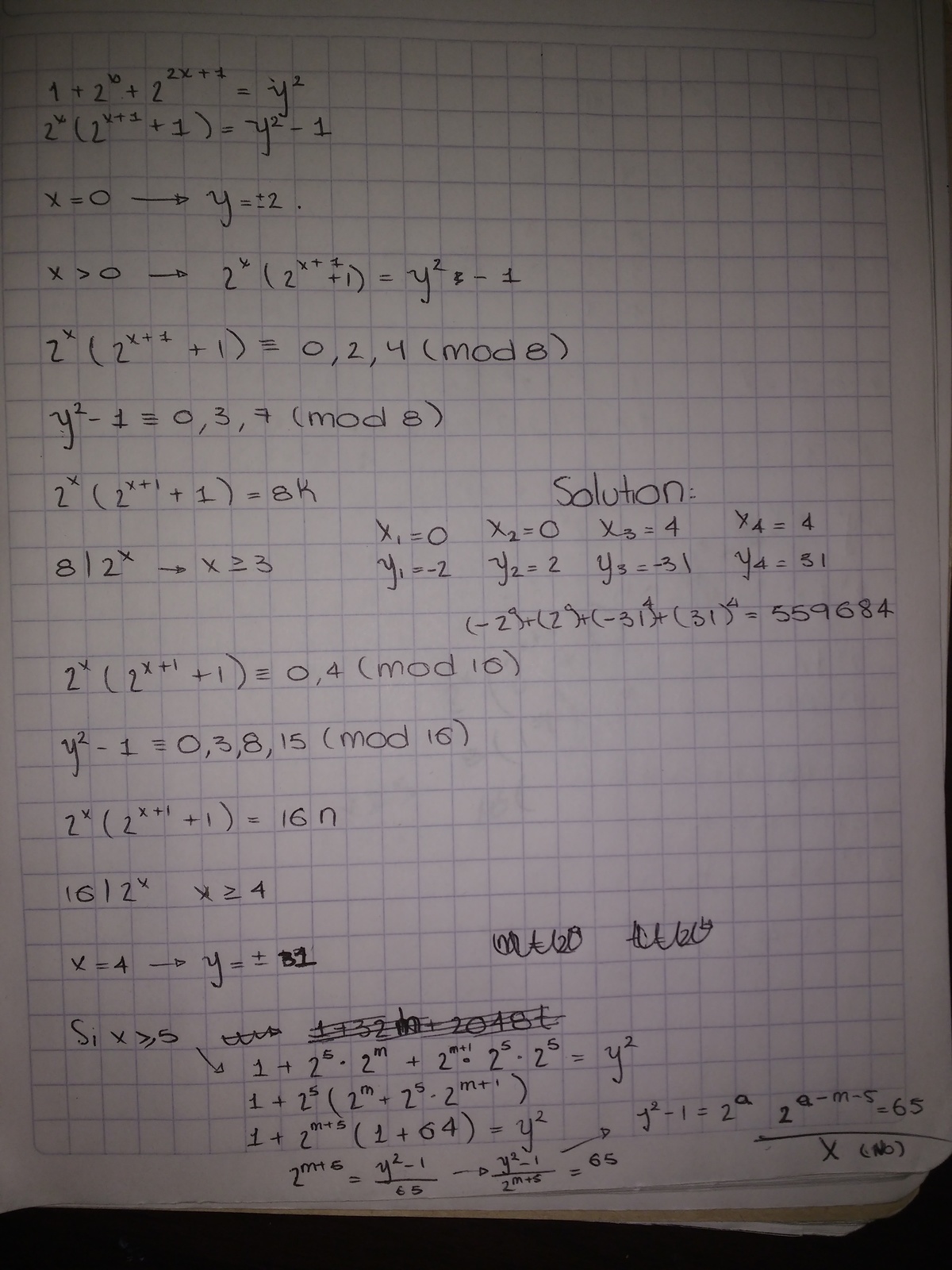Legend 2 x
Determine all pairs ( x , y ) of integers satisfying the equation: 1 + 2 x + 2 2 x + 1 = y 2 If your answers are ( x 1 ; y 1 ) , ( x 2 ; y 2 ) , ⋅ ⋅ ⋅ , ( x n ; y n ) type it as y 1 x 1 + y 2 x 2 + ⋅ ⋅ ⋅ + y n x n
.
The answer is 559684.
This section requires Javascript.
You are seeing this because something didn't load right. We suggest you, (a) try
refreshing the page, (b) enabling javascript if it is disabled on your browser and,
finally, (c)
loading the
non-javascript version of this page
. We're sorry about the hassle.
2 solutions

not (4,+-31) but (4,+-23)
We notice that 1 + 2 x + 2 2 x + 1 is not an integer if x < − 1 and equals 2 and 4 when x = − 1 and 0 respectively.
Thus, the only solution is when x ≤ 0 is ( x , y ) = ( 0 , ± 2 ) .
If x ≥ 1 , then 1 + 2 x + 2 2 x + 1 is odd. Hence 8 ∣ ( y 2 − 1 ) = 2 x ( 2 x + 1 + 1 ) , so that x ≥ 3 .
From ( y − 1 ) ( y + 1 ) = 2 x ( 2 x + 1 + 1 ) and the g cd ( y − 1 , y + 1 ) = 2 since they are consecutive integers,
we get 2 y − 1 × 2 y + 1 = 2 x − 2 ( 2 x + 2 + 1 ) = k ( 8 k + 1 ) , where k = 2 x − 2 is a positive power of 2.
Since 2 y − 1 and 2 y + 1 are consecutive integers, there must exist positive odd integers r , s such that { 2 y − 1 , 2 y + 1 } = { k r , s } and r s = 8 k + 1 .
Since 1 = ∣ k r − s ∣ = ∣ k r − r 8 k + 1 ∣ , we must have r = 3 , Hence ∣ k − 1 ∣ = 3 and 2 x − 2 = k = 4 . Thus, x = 4 and y = ± 2 3 .
The only solutions in integer pairs are ( x , y ) are ( 0 , ± 2 ) and ( 4 , ± 2 3 ) ⟹ y 1 x 1 + y 2 x 2 + ⋅ ⋅ ⋅ + y n x n = 2 0 + ( − 2 ) 0 + 2 3 4 + ( − 2 3 ) 4 = 5 5 9 6 8 4 .